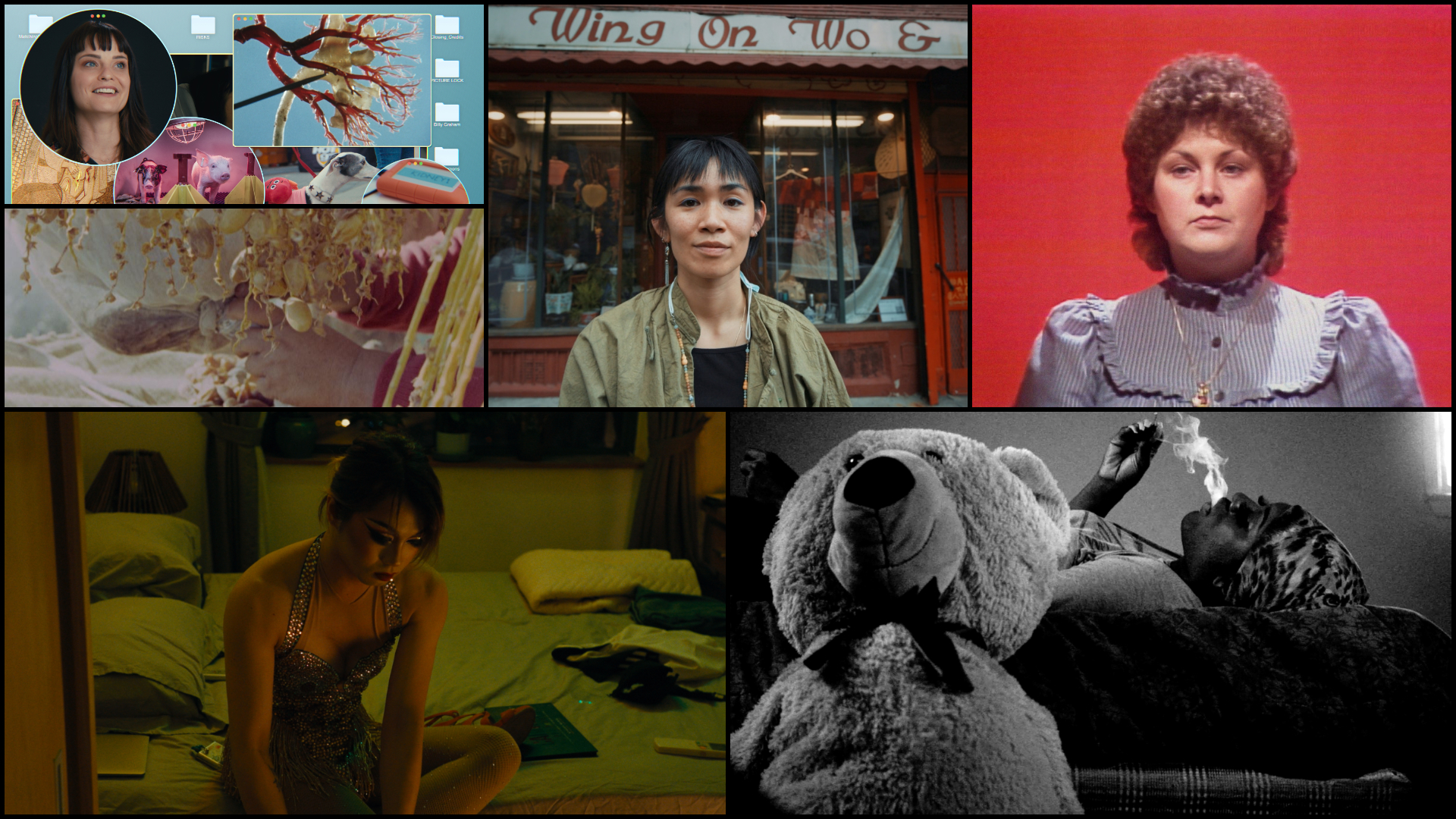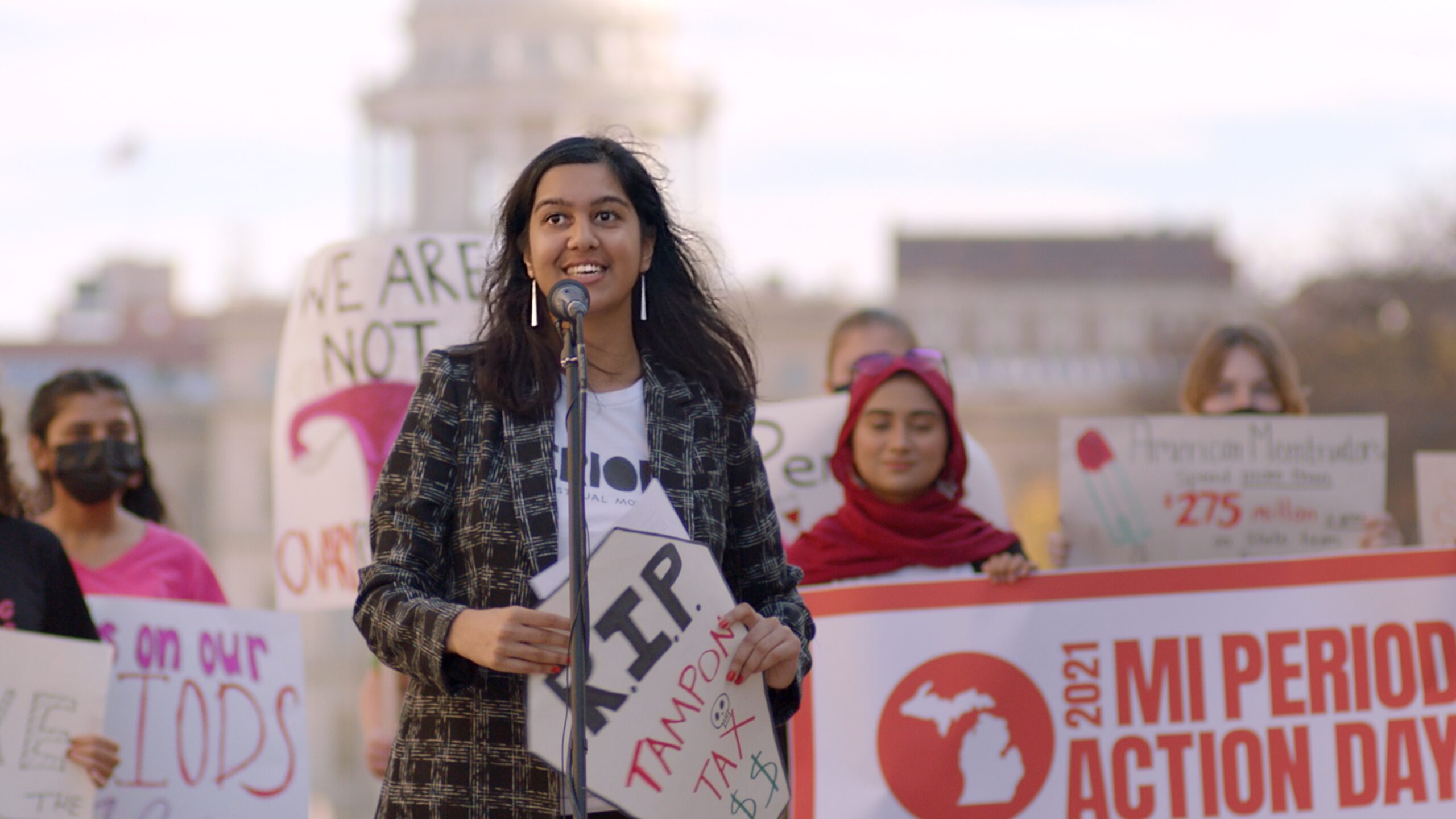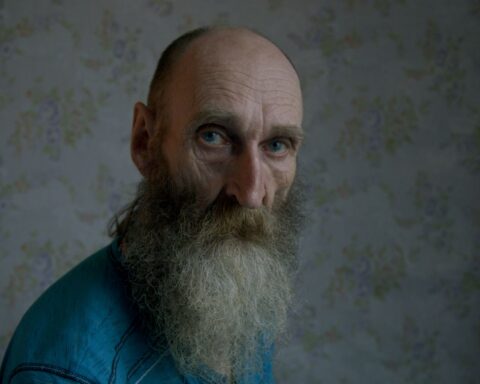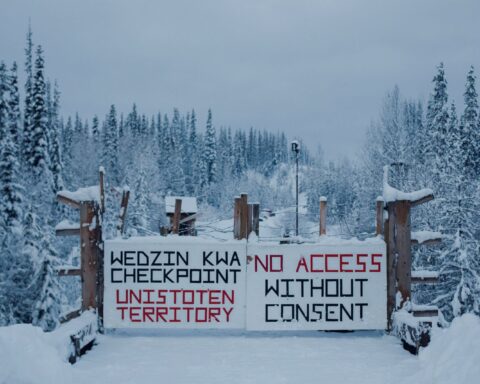Vancouver’s documentary festival is back! DOXA kicks off today with a tightly curated line-up that offers many festival favourite from the circuit. The festival begins with Karen Cho’s Big Fight in Little Chinatown, which brings home a story close to Vancouver’s heart with its portrait of the changing nature of Chinatowns across North America. Other highlights include a handful of Sundance winners, like Audience Award champs 20 Days in Mariupol and KOKOMO CITY, which engage audiences with unique portraits of two of the most topical themes in current affairs: the war in Ukraine and transgender rights, respectively. The festival also has some of the top dogs at Hot Docs, including some of my personal favourites from the festival, like Confessions of a Good Samaritan, You Were My First Boyfriend, and Feet in Water, Head on Fire.
To help readers, here are several POV picks for this year’s DOXA Documentary Festival.
Big Fight in Little Chinatown
After debuting at DOC NYC and winning some prizes at RIDM, Big Fight in Little Chinatown continues a strong festival run by nabbing DOXA’s opening night slot. Karen Cho’s film explores how gentrification and anti-Asian prejudice shape Chinatowns across North America. Whether in Canada’s Montreal, Toronto and Vancouver or the U.S.’ New York and San Francisco, historic Chinese communities are finding their neighbourhoods threatened. Cho talks to academics and community leaders to hear about the issues that are besieging this continent’s Chinatowns.
“I really got to know the different Chinatowns in Canada and the communities that were connected to them,” Cho tells Rachel Ho in an interview for POV. “To come back almost 20 years later and see some of the Chinatowns that I knew so well in a period of decline or erasure was concerning.”
Anhell69
Audiences looking for a punch in the face of great cinema at DOXA will find it in Anhell69. Colombian filmmaker Theo Montoya takes a hybrid approach to this portrait of youth alienation in his home country. Anhell69 mixes vampires and zombies in a film-within-a-film telling of broken dreams and lost hope. The film itself is haunted by ghosts, too, as Montoya captures the final works by many cast and crew members who died during or shortly after production. “One gets the sense that Montoya felt driven to keep filming, even after the distinct roadblock of having a key cast member die,” wrote Matthew Hays during RIDM. “Anhell69 is raw, uncompromising and disturbing, the best kind of transgressive documentary filmmaking.”
Satan Wants You
A Fake News parable for the Pizzagate era arrives in the delightfully strange Satan Wants You. Vancouver-based filmmakers Sean Horlor and Steve J. Adams dive into the odd case of Michelle Smith, who allegedly “remembered” being abducted and traumatized by a Satanic cult and lived to write a book about it with the quack doctor who conjured the memory into being. The film smartly shows the consequences that happen when people willfully believe anything you tell them.
“When terrible things happen in people’s lives, they try to find an explanation for it,” Adams tells Rachel Ho in the current issue of POV. “It’s easier to blame this make-believe element, rather than blaming themselves or a neighbour or a family member.”
Mother Saigon
Khoa Lê delivers a strikingly cinematic portrait of Saigon’s queer community in Mother Saigon. The film follows several characters who navigate life in drag and the freedom of self-expression. Taking audiences into vibrant nightclubs filled with eye-popping swathes of colour, Mother Saigon tells a parable of resilience and the strength of chosen families. It’s a beautiful and resonant work told with a collaborative spirit that puts its characters’ voices at the fore.
“This film was more about connecting with the environment, seeing my characters as different versions of me in a way,” Lê tells Justine Smith in the new issue of POV. “I feel pretty privileged to live here [in Canada] and make my art here. When I go back to Vietnam, I see these amazing people who have to struggle and fight for their identity. I’m not wearing their shoes.”
You Were My First Boyfriend
Get ready to laugh and cry with You Were My First Boyfriend. This unique hybrid film from Cecilia Aldarondo reimagines the director’s high school years through dramatic interpretations of teen movies. In a shrewd move, Aldarondo and several of her former classmates participate and filter their teen years through their adult selves. The film explores with disarming candor the weight that seemingly inconsequential moments can be carried throughout someone’s life.
“Aldarondo has a great eye for both the documentary and dramatic poles of her film,” I wrote while reviewing the film at Hot Docs. “She knows how to put them in conversation. The mix of archive, verité, and fictional-ish recreations illustrates how people with whom we share our lives shape the past, present, and future. Moreover, she gets the fluidity and subjectivity of memory, and the productive exercise that arises in sorting out the creative differences of memory.”
Feet in Water, Head on Fire
Anyone looking for a fresh voice on the Canadian scene will find it in Terra Long’s Feet in Water, Head on Fire. The film might strike audiences in the way that Jacquelyn Mills’ experimental Geographies of Solitude wowed the crowds on last year’s circuit. Long displays an equally strong eye and aesthetic sensibility in this essay film that considers the people and land of the Coachella valley, and the histories entailed within.
““I wanted to hand process and didn’t want to bring chemicals into a region that is so deeply tied to the landscape,” Long tells Marc Glassman in the new issue of POV. “I wanted to leave as little a trace as possible. So, I decided I’d do eco-processing there. Dates are really high in phenolic acids [a type of chemical used in film development]. My first big foray into hand-processing was during harvest time in a date oasis. The results were so beautiful and effective.”
Silvicola
Here’s one for the home team. Silvicola offers a visually rich exploration of the forest industry told through the hands that work among the trees. Director Jean-Philippe Marquis considers the state of the industry and its environmental consequences through the perspectives of people who need forestry to earn a living. The film captures the beauty of the landscape, but also the devastation as workers examine the stumps of old growth trees or plant seedlings among a graveyard of trees razed and abandoned on the woodland floor without reason.
“When I was sharing meals with loggers, I would sense this internal dilemma. Often, those forestry jobs were the only ones that were available in these small, remote areas,” Marquis tells Madeline Lines in the new issue of POV. “They loved the forest, but they needed to feed their families too. The film is about this vulnerability.”
Confessions of a Good Samaritan
Festival favourite Penny Lane delivers her most personal work yet with Confessions of a Good Samaritan. The film follows Lane along her adventures with altruistic organ donation. As she mentally prepares to gift one of her kidneys to a stranger in need, Lane considers the nature of altruism among human behaviour. Speaking with former donors, researchers, and peers, she unpacks the complicated kindness of helping others.
“The director’s signature inquisitiveness and playfulness fuel the film,” I wrote while reviewing the film during Hot Docs. “Confessions of a Good Samaritan retains the sense of humour of Lane’s prior works even if one senses a change of heart. She mixes layers of materials—archives, onscreen diary entries that she writes in her laptop, verité—to create a fun and thoughtful collage.”
King Coal
One of Navalny’s Oscar-winning producers, Shane Boris, teams up with director Elaine Sheldon to create the kind of off-the-grid poetic documentary that DOXA is all about. King Coal is a hybrid study of the mining industry in West Virginia. But this is no ordinary tale of coal diggers and hillbillies. Rather, it’s a picturesque study informed and fuelled by the artistic life of the area: fiddlers play and dancers shake a leg amid to create an immersive portrait of the region in all its complexity.
“Sheldon’s journey isn’t simply nostalgic or bitter about the change,” wrote Jason Gorber while reviewing King Coal at Sundance. “The film’s strength lies in how it navigates both the past and present, the local and the international, digging into these various aspects through a welcoming journey through the countryside. Town gatherings are captured with almost anthropological precision, while a classroom visit of a mucked-up former miner is both poignant and kind of preposterous. Yet again, King Coal manages to be both at once, for the better.”
Twice Colonized
Angry Inuk star Aaju Peters gets another bigscreen treatment with Twice Colonized. Directed by Lin Alluna with Angry Inuk director Alethea Arnaquq-Baril among its producers, this Danish-Canadian co-pro follows Peters as she continues to fight for Indigenous, Inuit, and First Nations communities to have a say in their own affairs. The film may be a might darker than Angry Inuk due to events that happen in Peters’ life, but her strength again remains an inspiration. If anything, the heartache makes the fight twice as fierce.
“I always have to remind people that we have different colonizers at different points and that things have evolved at different speeds,” said Peter in an interview with POV. “The Danes, even though they developed infrastructure, they have a lot to learn from the Canadian examples as well, and the Canadian Arctic has a lot to learn. I’m hoping that this documentary of being twice colonized will get the conversation going. We are not the same.”
20 Days in Mariupol
This Sundance Audience Award winner is absolutely devastating. Director Mstyslav Chernov gives the best portrait of the war in Ukraine so far with this feat of reportage that expands upon his coverage as an Associated Press videographer. The film delivers gripping footage from the front lines of a war zone, but also explores the sheer difficulty—both practical and moral—entailed in telling the story. The most suspenseful moments, for example, see Chernov trying to find a stable WiFi signal to upload his footage. Meanwhile, the film as a whole offers expanded context to situate news footage within a larger war between truth and misinformation.
“Some of the people who watch the film now will look at the news in a different way,” said Chernov in an interview with Jason Gorber during Sundance. “They’ll remember there is a person behind the camera, that there are feelings there, and that this person was in danger, was suffering, was a part of the community, or was a foreigner. How does this information shape the world, or shape the media’s case?” Read more about docs that capture the war in Ukraine in our new issue.
KOKOMO CITY
Get ready to be wowed by the women of KOKOMO CITY. This first feature by D. Smith rightly earns its all caps assertiveness. The film is a fun and intimate study of the lives of four Black transwomen and sex workers. Without any hint of judgment, Smith chronicles the daily experiences of these women as they make a living through the oldest profession—and one historically forced upon Black transwomen by necessity. It’s as frank as it is funny, with some truly memorable characters.
“The approach to doing KOKOMO CITY was, ‘Let’s be ourselves,’” Smith told POV in an interview during Sundance. “However we talk, let’s leave the red carpet dialogue away from this. As a matter of fact, let’s not even wear makeup. Forget about glam, or wigs. Let’s strip down and let’s be truthful about who we are. You’re still beautiful whether you wear makeup or not. They’re all gorgeous women. I think that approach really drew people to their stories without feeling like they’re being preached to. No one gave me any pushback. They just all did it. Like some were in bonnets, some were half-naked, some rolling blunts. It was familiar.”













